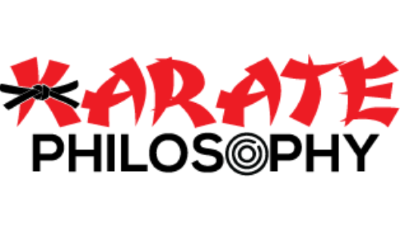I have immense admiration and respect for the late instructor, Inoue Yoshimi, renowned for coaching numerous world kata champions, including Mie Nakayama, Ryoki Abe, Atsuko Wakai, the Hasegawa Brothers, Antonio Diaz, and Rika Usami.
Inoue Yoshimi was quoted as saying that “karate is 99% feeling”, but I believe his true intention was to convey that “karate is 99% mental”. With karate being a physical art, this initially seemed paradoxical to me and I have been pondering about its meaning ever since. Only recently have I come to realize that while it is difficult to quantify, the mental aspects of karate are indeed far more significant than the physical ones. I also realized that Inoue’s saying is very much in line with Gichin Funakoshi‘s 5th Precepts of Karate “Mentality Over Technique.”
Every aspect of karate, from training, progressing to competition, is deeply intertwined with one’s mindset.
Whether you turn up at the dojo and train consistently despite external distractions such as weather conditions, mood swings, social events, or work commitments, it is a battle of the mind.
Whether you are fully present, paying attention, and following instructions closely instead of letting your mind wander and dwell on negative thoughts, worries, concerns, or future plans, it’s a battle of the mind.
Whether you constantly seek ways to improve your understanding of your body and how to use it more efficiently in every technique, or simply learn what you are taught to pass grading, it depends on your mindset.
Whether you persist with your training despite injuries, unsuccessful competitions, frustrations at seeing no tangible progress in your karate, or life’s myriad ups and downs, it’s a battle of the mind. As the saying goes, ‘A black belt is a white belt who didn’t quit. A master is a black belt who didn’t quit.”
When you are sparring and find yourself down two points or taking a smack in the face, whether you can remain calm, persistently push forward, and fight to the best of your ability for the remaining time, or surrender to your opponents and merely wait around for the bell to ring, it is the battle of the mind.
When performing a kata, whether you’re able to execute it to the best of your ability with speed, power, and martial spirit depends on your ability to completely focus on the kata and free your mind of distractions, worries, and self-talk. Again, it all boils down to the battle within the mind.
People often say that, in a fight, at the end of the day, the stronger and fitter one is most likely to come out on top. That may be true, but how did they get there in the first place? Genetics may play some role, but generally those who become the fittest and strongest do so because they are fully committed to their training to get better and stronger. They show up to train, rain, hail or shine. They persist. They ask questions. They constantly learn and seek the best way to reach their goal.
So, while the physical aspects may play a critical role, it all starts with the mindset. The most powerful car in the world will remain a pile of steel in a car yard if you don’t fill it up with the right fuel. Similarly, you may have the genetics to become the best athlete in the world, but if you don’t put in the time, effort, blood, sweat, and tears into achieving your goals, you will never reach your full potential and forever remain mediocre.
Mike Tyson became one of the greatest fighters to ever live likely due to his exceptional strength and intimidating physique, which were the results of a strict calisthenics workout routine. This routine included approximately 500 bench dips, 500 pushups, 500 neck curls, 2000 air squats, 2,500 sit-ups, and 10 minutes of bridges—a feat that few top athletes can match.
The same principle applies to life. Our mindset determines everything. Meaningful changes in life always start from within – they begin with shifts in belief, thinking, and determination, which subsequently manifest as changes in actions, habits, and life trajectories.
A beginner’s mindset helps us approach situations with openness, eagerness to learn, and absence of preconceptions, fostering effective learning, creativity, and innovative solutions. A strong mindset fosters resilience, enabling us to bounce back from setbacks and failures. It helps us maintain focus and determination in the face of adversity. A positive mindset helps us see obstacles as opportunities for growth, while a negative mindset may lead to viewing challenges as insurmountable barriers. Finally, a growth mindset encourages creative problem-solving and adaptability. Instead of getting stuck on setbacks, individuals with the right mindset seek solutions and learn from their experiences.
Despite encountering constant uncertainties and roadblocks in the world, if we set our minds right, nothing can hinder us from achieving our goals.
Building the right mindset and strong mentality isn’t easy, yet it stands as the most crucial step before embarking on any endeavor.
In summary, in karate as in life, mindset is everything. If you want to progress in karate or achieve happiness and success in life, having the right mindset is crucial because it shapes our perception, attitude, and approach towards life’s challenges and opportunities.
Other posts you might be interested in:
The Twenty Precepts of Karate and Their Meanings
On Building Confidence in Your Karate Skills
How to Progress Faster By Training with Purpose
The Benefits of Training with Lower Belts
How Competing Can Make Your Karate Better

